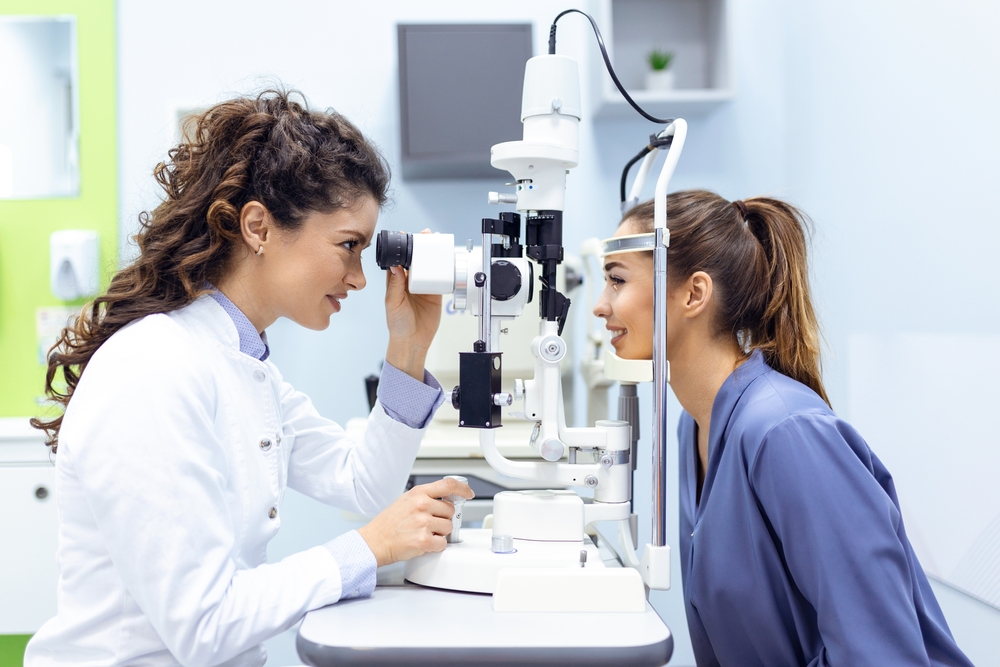All Categories
Featured
We usually listen to concerning securing our skin from hazardous ultraviolet (UV) rays, however did you recognize that UV exposure can likewise substantially affect your eye health? Whether you're outdoors on a warm day or even during over cast weather condition, your eyes are regularly revealed to UV radiation. Long term direct exposure can increase the risk of different eye conditions, several of which may cause long-term vision damage. Understanding the effects of UV rays on your eyes and how to protect them is necessary for keeping long-term eye health.
Sorts Of UV Rays. UV rays are categorized into 3 types:
UVA Rays: These rays pass through deep into the skin and can likewise affect the internal layers of the eyes. UVB Rays: These rays mainly trigger damages to the skin's surface area but can additionally harm the cornea and lens of the eye. UVC Rays: While these are the most dangerous, they are mainly absorbed by the Earth's ambience and do not reach the surface. Both UVA and UVB rays are damaging to your eyes, and in time, exposure can bring about severe eye problems.
Short-Term Effects of UV Direct Exposure. Even brief direct exposure to extreme UV rays can result in instant eye damage. A common short-term problem is photokeratitis, typically described as "sunburn of the eye." Symptoms of photokeratitis include:
Soreness and inflammation. Sensitivity to light. Tearing or watery eyes. An abrasive experience, as if something is stuck in your eye. While the signs and symptoms of photokeratitis are short-lived and normally solve within a day or 2, duplicated occurrences can have cumulative results on your vision.
Long-Term Effects of UV Direct Exposure. Chronic UV exposure can add to numerous significant eye problems, including:
Cataracts: Over time, UV rays can trigger clouding of the eye's lens, causing cataracts, among the leading causes of blindness worldwide.
Macular Deterioration: Long term UV exposure can damage the retina, especially the macula, leading to age-related macular deterioration (AMD), which affects main vision.
Pterygium: Additionally recognized as "web surfer's eye," this condition includes the growth of a fleshy cells on the white component of the eye, which can cross the cornea and impact vision.
Skin Cancer Around the Eyes: The delicate skin around the eyes is susceptible to UV radiation, raising the risk of skin cancer cells, such as basal cell carcinoma.
Pinguecula: UV exposure can also cause yellow-colored down payments on the conjunctiva, which can create irritation and discomfort.
How to Secure Your Eyes from UV Rays. Put On Sunglasses with UV Security: Always pick sunglasses classified as obstructing 100% of UVA and UVB rays. Wrap-around designs offer extra defense by blocking UV rays from the sides.

Use a Wide-Brimmed Hat: Hats with a broad border can reduce UV direct exposure by approximately 50%, supplying added insurance coverage for your eyes and face.
Avoid Optimal Sun Hours: UV rays are strongest between 10 a.m. and 4 p.m. Restricting your outside tasks during these hours can assist minimize direct exposure.
Do Not Forget Youngsters: Children's eyes are a lot more delicate to UV rays, so ensure they put on sunglasses and hats when outdoors.
Wear UV-Blocking Get In Touch With Lenses: If you wear contacts, ask your eye care carrier regarding UV-blocking lenses for added defense.
Stay Protected Year-Round: UV damages isn't limited to summertime; rays can mirror off surface areas like water, sand, and snow, making eye protection essential all year.
Final thought. Securing your eyes from UV rays is essential to maintaining your vision and total eye wellness. The impacts of UV exposure may not constantly be instant, but they can gather in time, resulting in severe problems. By taking basic preventative measures like using UV-protective sunglasses, limiting direct exposure throughout height hours, and consistently seeing an eye treatment professional, you can guard your eyes from the dangerous effects of UV radiation. Keep in mind, your eyes are irreplaceable-- take steps to safeguard them today.
Latest Posts
Explore the Best Auto Repair Offers in Montclare, Chicago
Don’t Miss Exclusive Auto Repair Deals in Chicago at Montclare Auto Repair
Uncover the Best Auto Repair Discounts in Montclare, Chicago
More
Latest Posts
Explore the Best Auto Repair Offers in Montclare, Chicago
Don’t Miss Exclusive Auto Repair Deals in Chicago at Montclare Auto Repair
Uncover the Best Auto Repair Discounts in Montclare, Chicago